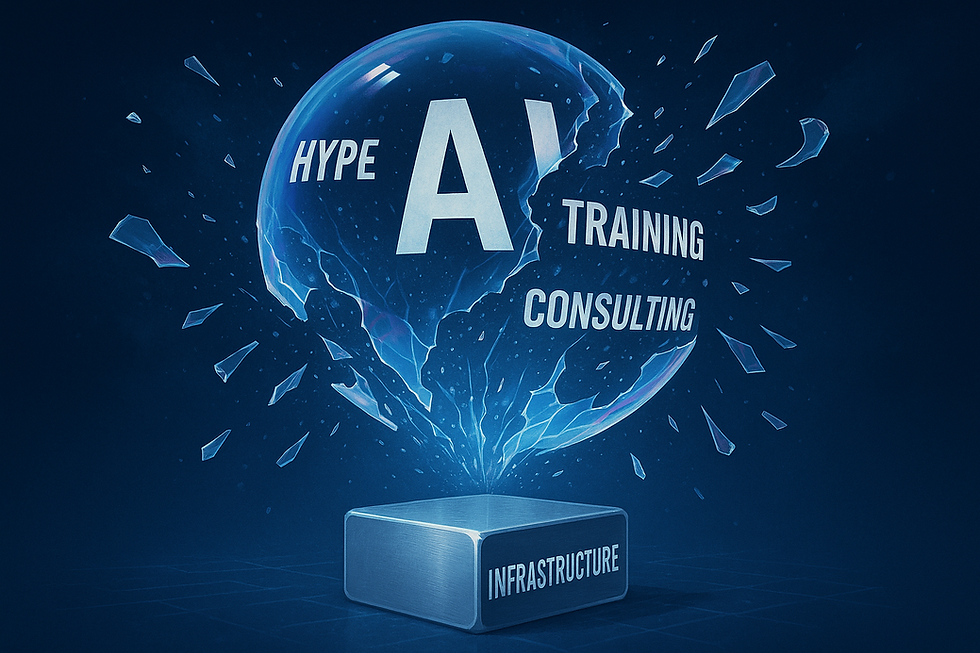Will Nvidia's New 'AI Agent' Really Change the World
- Rich Washburn

- Jan 31, 2024
- 2 min read

In a recent Ted Talk, Jim Fan, a senior research scientist at Nvidia and the lead of the AI agents initiative, unveiled an intriguing vision for the future of artificial intelligence. His presentation centered on the concept of a "Foundation Agent" - a powerful, multifunctional AI capable of operating seamlessly across both virtual and physical environments. This transformative technology, as Fan elucidates, is poised to revolutionize diverse domains, from video games and the metaverse to drones and humanoid robots.
It's crucial to differentiate a Foundation Agent from Artificial General Intelligence (AGI). While AGI signifies a level of AI sophistication where machines can understand, learn, and apply intelligence across a wide range of domains akin to human capability, a Foundation Agent is designed for versatile, multifunctional operations across varied realities, both virtual and physical. This distinction underscores the specific and practical applications of Foundation Agents as opposed to the broader and more theoretical aspirations of AGI.
A notable aspect of Fan's talk was the introduction of "Voyager," Nvidia's pioneering AI agent capable of playing Minecraft professionally. This agent showcases the potential of Foundation Agents in mastering complex tasks in open-ended environments. Voyager, through coding as action, converts the 3D world of Minecraft into a textual representation, enabling it to generate code snippets that translate into executable skills within the game. This process, rooted in Nvidia's GPT-4, highlights the agent's ability to self-improve and recursively boost its capabilities.
The development of Foundation Agents like Voyager signifies a leap forward in AI's application in real-world scenarios. These agents, through their ability to understand and interact within various environments, bring us closer to the realization of autonomous systems capable of complex decision-making and problem-solving. The strategic value of such agents lies in their potential to make sense of different world rules, whether in simulations or real-world physics, a critical step towards truly adaptable AI systems.
Nvidia's Omniverse platform plays a pivotal role in the advancement of embodied AI systems. Omniverse, with its capability to simulate complex environments and physics, provides a rich training ground for AI agents. The simulation of thousands of different scenarios enables these agents to learn and adapt to a wide range of conditions, crucial for bridging the gap between virtual training and real-world application.
The Future of Foundation Agents
Imagine a future where Foundation Agents, like Voyager, are deployed in various fields. In urban planning, these agents could simulate and optimize city layouts, improving traffic flow and reducing pollution. In healthcare, they could assist in complex surgeries, adapting to unpredictable scenarios with precision and efficiency. In environmental conservation, such agents could monitor and manage ecosystems, reacting dynamically to changes and threats. This future, where AI agents seamlessly integrate into our physical and virtual worlds, enhancing our capabilities and decision-making, is not just a possibility but an imminent reality.
#NvidiaAI, #FoundationAgent, #AIRevolution, #JimFan, #VoyagerAI, #Omniverse, #MachineLearning, #EmbodiedAI, #TechInnovation, #FutureTech




Comments